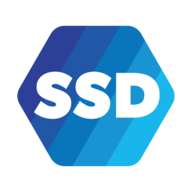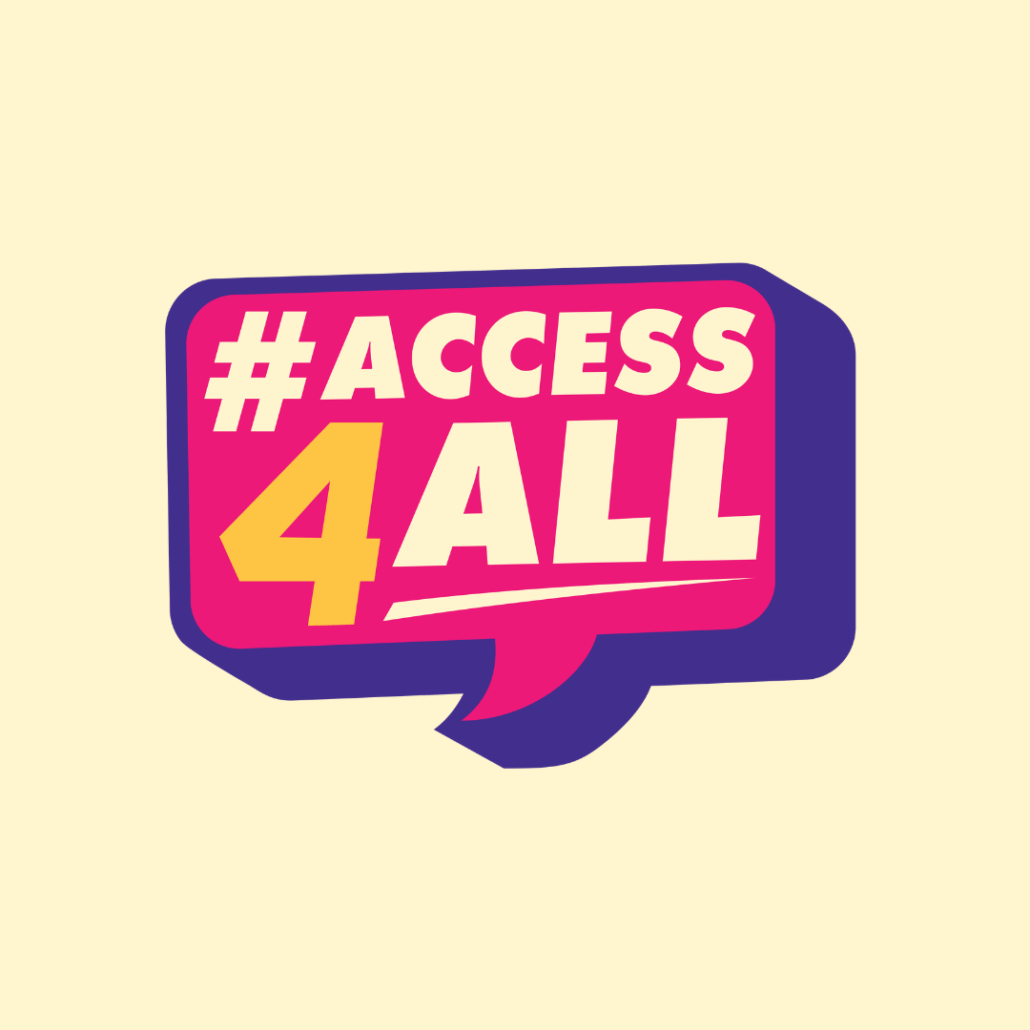#Access4All Campaign
#Access4All began in 2021 during the COVID-19 pandemic, sparked by a disabled, bedbound UVic student who feared they wouldn’t be able to complete their degree due to the university’s sudden return to in-person classes, with little to no online or hybrid options available. They were soon joined by other student advocates who recognized that this lack of flexibility affects a wide range of students: disabled students, international students, students who work part– or full-time, and those with caregiving responsibilities. Since our campaign launched in May 2021, UVic has continued to fall short in providing equitable access to education. #Access4All demands meaningful change. We advocate for accessible, inclusive learning at UVic and challenge the ableist structures that limit who can participate in higher education. We are pro in-person, pro-online, and pro-hybrid. We believe every student deserves the right to learn in the format that best fits their needs. Access isn’t optional, it’s a right.
Hyflex:
Hyflex is short for hybrid flexible. It is a course design model that gives students the option to attend sessions in the classroom, participate online, or do both.
#Access4All is a UVSS Campaign calling for hy-flex and hybrid education options for all students at UVic
Solely to in-person delivery of classes is an active dismantling of equitable education.
Those who are:
- Disabled
- Have mental health conditions
- Mature students
- Immunocompromised
- Caring for at-home dependents
- Working while studying
- Unable to afford rent in Victoria
are disproportionately impacted by a mandatory return to in-person classes. Without recorded lectures, online course options, and other similar access points for at-home learning, these students are disadvantaged by a lack of accessible learning options.
#Access4All committee members have met with local MLAs, Parliamentary Secretary Dan Coulter, UVic Executives, and continue to participate in the revision and renewal of policy AC1205: the policy outlining academic accommodations at UVic.
In April 2025, the #Access4All committee signed a joint letter sent to UVic’s Senior administration alongside fellow student, staff, and faculty association and unions.
These efforts have not resulted in any tangible or meaningful actions that address these accessibility barriers at UVic, despite clear and consistent asks on the part of Disabled students, as well as faculty and staff.
We demand #Access4All
The COVID-19 pandemic has shown that adaptations to the delivery of education for the well-being, health, and safety of all students can be achieved when deemed “necessary.” Maintaining accessible education options is necessary.
Demands of the University of Victoria:
Demands
Long Versions
- UVic must ensure that all required courses include at least one section offered in an online or HyFlex format. Furthermore, UVic must commit to a campus-wide transition toward making all courses, including lectures, labs, and tutorials, available in online or HyFlex formats across all faculties.
- If a specific learning outcome cannot be reasonably achieved through online or HyFlex delivery, any requirement for in-person attendance must be clearly justified, reviewed, and approved in advance, consistent with the standards applied during the 2020–2021 academic year. In such cases, in-person time must be minimized wherever possible. For example, multiple weekly in-person labs should be consolidated into a single, comprehensive session that covers the same material.
- In the interim, UVic must provide transparent and up-to-date reporting on which courses will have lecture recordings available for the majority of the term. The university must also clearly communicate to instructors that offering recorded lectures does not constitute a change in the official course delivery mode, unlike HyFlex delivery, which does.
- UVic must provide comprehensive support and training for instructors and teaching assistants (TAs) to effectively deliver HyFlex courses across all faculties. This support must include access to appropriate technology, instructional design resources, and clearly designated technical assistance. In addition, UVic must publicly commit to supporting the #Access4All campaign by actively lobbying the provincial and federal governments for additional funding, as agreed upon at the February 12, 2025 meeting. This includes securing increased resources for faculty and TAs as they adapt to flexible and accessible course delivery models.
- UVic must reinstate mandatory training for Echo360, ensuring that all instructors and TAs have both the time and compensation required to participate. UVic should actively encourage the consistent use of Echo360 as a key tool for accessible course delivery. To support this, UVic must provide clear documentation of adoption benchmarks and commit to publishing annual progress reports demonstrating increased and improved use of the system. While training resources are currently available through UVic’s TeachAnywhere platform, training is not a requirement, resulting in uneven and often ineffective implementation of the technology. UVic must take leadership in making Echo360 reliable and standardized as part of its commitment to accessible education.
- UVic must eliminate punitive attendance policies that tie participation or attendance directly to students’ grades. These policies are inherently discriminatory against disabled and chronically ill students, who may be unable to attend in-person regularly, and unfairly penalize students with work or caregiving responsibilities who must balance school with earning a living or supporting others. Additionally, these policies create serious health risks by pressuring students to attend class while ill, even during contagious periods. This not only endangers the broader campus community but especially threatens the health and safety of immunocompromised students, staff, and faculty. UVic must adopt inclusive and flexible attendance practices that recognize the diverse realities students face, including disability, illness, financial hardship, and care work, and affirm that learning can happen in multiple formats, not just the classroom.
- UVic must ensure that in-person learning is truly accessible to all students, including those who learn best through in-class experiences. Physical access to education is a matter of equity and must be treated as a priority, not an afterthought. This includes updating existing classrooms to include universally accessible seating, lighting, and layouts, and ensuring that every new classroom built follows universal design standards from the outset. UVic must also increase the number of accessible parking spaces across campus and ensure that snow and ice are promptly removed from all walkways, ramps, and designated accessible parking stalls whenever the campus remains open during winter conditions. Furthermore, the university must commit to closing campus during inclement weather when conditions pose safety risks, particularly for students with limited mobility or chronic health conditions. In-person learning must be safe, inclusive, and accessible for everyone.
- UVic must provide greater access to safe, quiet, and accessible study spaces by extending library hours, particularly during evenings, weekends, and exam periods. For many students, especially those living in unsafe, crowded, or inaccessible housing, campus study spaces are essential for focus, productivity, and wellbeing. Extended library hours are a basic but critical step toward ensuring equitable academic conditions for all students, including disabled students, students with caregiving responsibilities, and those balancing work and school.
- UVic must provide personal protective equipment (PPE), including face masks and face shields, at all building entrances or designated pick-up points across campus to ensure that every member of the university community can protect themselves and others. Furthermore, UVic should commit to partnering with #Access4All to actively seek provincial funding to secure sufficient PPE supplies and COVID testing resources for the entire campus community.
- The UVic Board of Governors must issue a clear, public statement affirming their ongoing commitment to dismantling ableist structures at the university. Furthermore, they must ensure transparency and accountability by providing regular, updated public reports detailing concrete actions taken to improve accessibility and equity for disabled students, staff, and faculty.
Short Versions
- Accessible Course Formats: UVic must ensure all required courses have at least one section offered in an online or Hyflex format. The university must also commit to transitioning all courses, including lectures, labs, and tutorials, across all faculties to be available in online or Hyflex formats. If in-person attendance is necessary due to unmet learning outcomes, it must be clearly justified, approved in advance, and minimized wherever possible, following the 2020–2021 standards.
- Interim Goals: In the interim, UVic must transparently report which courses will offer lecture recordings for most of the term. UVic must also clarify to instructors that providing recorded lectures does not change the official course delivery mode, unlike HyFlex.
- Instructor and TA Support: UVic must provide full support and training for instructors and TAs to effectively deliver online, hybrid, and HyFlex courses across all faculties. This includes access to necessary technology, instructional design resources, and dedicated technical assistance. UVic must also honour its February 12, 2025 commitment to the #Access4All campaign by actively lobbying for government funding to support flexible, accessible course delivery.
- Echo360 Training and Use: UVic must reinstate mandatory, compensated Echo360 training for instructors and TAs, standardize its use, and track adoption through annual public progress reports to support consistent, accessible course delivery.
- End Punitive Attendance Policies: UVic must eliminate attendance policies that penalize students for missing class, as they disproportionately harm disabled, ill, working, and caregiving students, and pose health risks by encouraging attendance while sick.
- Physically Accessible In-Person Learning: UVic must upgrade classroom accessibility, increase accessible parking, ensure timely snow and ice removal, and commit to universal design standards for all new buildings, while closing campus during unsafe weather conditions.
- Extended Study Space Access: UVic must extend library hours to provide safe, quiet, and accessible study spaces, particularly during evenings, weekends, and exam periods, to support students who lack access to such environments at home.
- PPE and COVID Safety: UVic must provide free PPE at campus entry points and partner with #Access4All to seek provincial funding for campus-wide access to PPE and COVID testing.
- Public Accountability from UVic Leadership: The UVic Board of Governors must make a public commitment to dismantling ableist structures and provide regular, transparent updates on accessibility improvements.
Want to get involved with #Access4All?
Check out our Instagram:@uvicaccess4all
Email uvicssd@uvic.ca to learn more about how you can support #Access4All
Show your support by SIGNING THE PETITION: http://chng.it/B7h6mzB9xt


